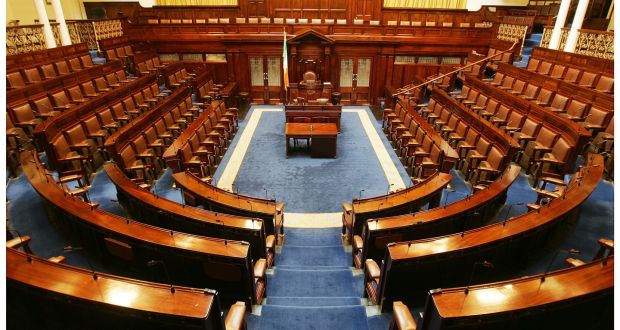There are profound ethical, accountability and constitutional issues in light of the belated discovery of documents demonstrating that the Irish people were victims of a campaign of sustained concealment by their own government in the course of the referendums on the family and care.
It isn’t a matter of those who opposed the referendums engaging in some kind of “I told you so” lap of honour at this point. There should be personal and political ministerial accountability on these matters.
In retrospect it is blindingly obvious that the proposed family amendment was always going to have profound implications for family law, succession law, taxation law, immigration law, welfare law and pensions law.
In all those areas, constitutional equality provisions, and family and children’s constitutional rights were going to oblige the courts either to re-interpret or to invalidate many existing laws referring to the exclusive rights, entitlements, and obligations of members of families based on marriage so as not to unfairly prejudice the rights of similar persons in non-marital, “durable” relationships.
And those who pointed out those implications were systematically contradicted and accused of scaremongering by Government ministers and others in the media – an offensive and groundless implication of political manipulation or recklessness on the part of those opposed to the amendments.
Of course, politicians and lawyers have the right to differ in the course of public as well as private debate. But the matter becomes much more serious if the people’s Government actively misrepresents or minimises knock-on implications of a decision that is reserved by our constitution for determination by the people in a single binary process.
By dishonestly claiming that the durable relationship family amendment could have no consequences for statute law in those areas and at the same time dishonestly claiming that the care amendment (which had been carefully neutered in its wording to prevent significant entitlements) could have beneficial knock-on constitutional implications, the Government and their supporters now appear to be the cynical manipulators of public opinion.
It is wrong that ministers should now hide behind what they claim was the advice of the Attorney General, to justify their misrepresentation of the implications of their proposals and seek by that means to defend the indefensible.
I have absolutely no problem with the general rule and convention that the Government is entitled to obtain and to keep confidential the advice of the Attorney General of the Government in all “matters of law and legal opinion” under Article 30 of the Constitution. No holder of that office would differ with that. It follows that the Government must be extremely careful and circumspect in ever departing from that convention.
But we are all equally bound to uphold the Constitution and ministers cannot simply engage in bland assertions about the meaning of proposed amendments, invoking the confidential advice of the Attorney General to prevent proper scrutiny of their own proposed amendments.
If it was proper to inform the public that the Attorney General had advised that there were simply no knock-on implications in the areas of family law, succession law, taxation law, immigration law, welfare law and pensions law in extending the constitutional family to “other durable relationships”, one would have expected that there was in the hands of ministers a separate, detailed analysis of each of those fields made by the Attorney General personally to that effect.
Such analysis would have had to deal with and refute each and every adverse implication or risk we now know was identified by agencies of state involved in the interdepartmental process which had oversight of the referendum proposals.
I cannot believe that such categorical advice was, or could have been, given to the Government, especially in the light of the O’Meara decision of the Supreme Court.
Nor can I believe that the newly established Electoral Commission could or would ever have offered any such advice to the people – even if it had the time and resources to analyse those matters in the rushed time frame it was afforded.
The Attorney General’s internal advice was redacted from the recently published records of the interdepartmental process leading to the referendum proposals. Even those redacted records were wrongly withheld from the public until after they had voted.
The bottom line is this: If the Government claims in a referendum on constitutional amendment that their proposal (not that of any Attorney General) will or will not have knock-on implications for the people, their laws or the State, and seeks to convince citizens to make constitutional change on the basis of Attorney General’s advice, the people as sovereign in our state must have a constitutional right to examine, accept or reject that advice. The Attorney General is the legal advisor of the Government – not of the people or even the Oireachtas.
Referendums are not mere political games. What we now belatedly know happened seems disgraceful and should have political consequence.

